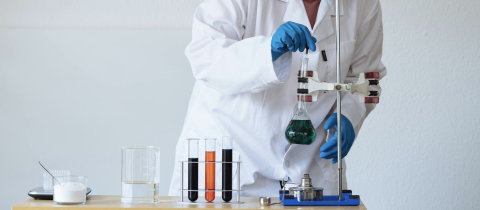In 2010 Frito-Lay introduced a 100% compostable bag for its SunChips with great fanfare only to yank it off the market a scant eighteen months later. Why? Believe it or not, the bags were too noisy! Consumers complained that handling the bags made a sound like a screeching train and irritated customers quickly organized a Facebook group that went by the name “Sorry But I Can’t Hear You Over This SunChip Bag.” When sales declined by some 11% due to the 95 decibel eardrum-blasting crinkle, Frito-Lay decided to throw in the towel and go back to the traditional polypropylene packaging.
The production of food packaging materials is a gigantic industry that is built upon extensive research. The material must form a strong protective barrier while minimizing the leaching of any chemicals into the contents. Weight is an important consideration and of course cost has to be taken into account. With the increasing need to minimize our “environmental footprint,” more and more effort is being devoted to the recycling and composting of packaging materials. Frito-Lay seemed to be on the right track when it introduced its 100% compostable chip bag, although there was controversy from the beginning about whether this was a move that was based more on marketing than on environmental stewardship. The major component of the novel bag was polylactic acid, a plastic made from the polymerization lactic acid. Lactic acid in turn can be made by the bacterial fermentation of glucose, a compound readily available from cornstarch, sugar cane or cassava. Polylactic acid, or PLA, is compostable, but that is not exactly the same as biodegradable. Dump the plastic in a landfill devoid of oxygen and it will not break down. Leave it in an open environment and it will eventually decompose but it will take a very, very long time. But place it in a hot, active composting bin and it will decompose in about three months.
How many people, though, have active composting bins? From the beginning the company realized that there was a noise issue. The problem has to do with the “glass transition temperature,” which is the temperature at which a plastic transforms from a hard, glass-like state to a flexible, rubbery state. Polylactic acid has a glass transition temperature that is just above room temperature so that just handling the bag is enough to cause the disturbing crinkling as the polymer oscillates between flexibility and brittleness. Frito-Lay thought it could head off complaints with the slogan, “this bag is louder because it is compostable,” hoping that environmental consciousness would trump the annoyance of the jet engine-like noise. It didn’t. Back to the drawing board. And now there is a prospect for a solution. The PLA bag, although only 20 micrometers thick, is actually made of multiple layers that include PLA, aluminum and a sealant held together by an adhesive. It seems that using a rubbery adhesive between the bag’s layers can cut the crinkling sound to an acceptable 70 decibels. We may yet see a complete line of SunChip products in compostable bags. Great if you have an active composting pile in your back yard. But what about making some noise about replacing chips in the diet by more nutritious foods? The crunch of a fresh apple is nowhere near 70 decibels and neither does it have a third of its calories coming from fat.







